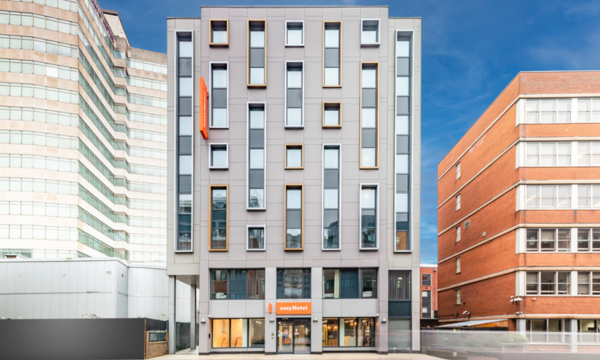Industry leaders are warning that plans for a visitor levy in Wales are too broad and risk ‘sidelining’ the tourism sector.
UKHospitality Cymru says it is concerned that current plans include no specific ring-fencing of funds to improve tourism.
In its response to the Senedd’s Finance Committee consultation on the draft visitor levy legislation, the trade body criticised funding plans which it says include no reference to supporting and improving tourism with the funds raised.
If passed, the Bill as it is currently written will “require local authorities to use the net proceeds for the purposes of destination management and improvement in its area and report on the use of the proceeds”.
In a snap survey of its members, North Wales Tourism said respondents reported a “significant lack of trust” regarding how the funds raised from a levy would be used.
UKHospitality Cymru has now called for:
- Specific clauses in the legislation that limit local authority spending of raised funds to areas that demonstrably, tangibly and directly benefit the tourism sector.
- The introduction of a displacement principle to ensure that proceeds from the levy are not used to replace existing funding by local authorities.
The organisation said these changes are critical for Wales as a tourist destination and to offset the impact of this levy, adding that the Welsh Government’s own impact assessment notes that the move could cause a reduction in the number of visitors to Wales. The same impact assessment highlights that the cost to visitors will be up to £33 million per year, said UKHospitality Cymru.
It has also recommended that the legislation be amended to exempt children from the levy, which would bring Wales into line with the majority of European nations that implement a levy.
David Chapman, Executive Director of UKHospitality Cymru, said:
“Throughout this process, the Welsh Government has made clear to us that it wants this levy to help local authorities and businesses in areas with high tourist numbers. Yet, there is no reference to improving tourism in how the funds can be spent.
“As it stands in this draft legislation, tourism has been sidelined and that is completely unacceptable. We are urging the Welsh Government to rectify this mistake and make clear that levy funds must be used to benefit tourism.
“Crucially, there must also be a displacement principle included that ensures levy funds are not simply used to fill council coffers and top up day-to-day spending.
“The Government’s own impact assessment makes clear the impact this levy will have on tourism – reducing visitor numbers and making trips more expensive for those who do visit.
“This legislation should do all it can to offset that and ringfencing funds to benefit tourism would be a logical place to start. We also need to see them exempt children from the levy, to ensure families, many of whom may already be on tight budgets, can enjoy holidays in Wales, rather than elsewhere.
“Hospitality and tourism businesses want to work closely with the Welsh Government to make this levy as successful as possible, and we hope our recommendations are taken on board so we can work to improve the visitor experience in Wales together.”
North Wales Tourism conducted a snap survey among its members to assess any changes in views regarding the proposed tourism tax since the last consultation.
It said the survey showed a “significant lack of trust” among respondents regarding how the funds raised from a levy would be used.
The organisation said that many respondents questioned whether the revenue would be reinvested into improving tourism infrastructure, such as roads, public transport or local services, or whether it would end up funding unrelated or ineffective projects. Some expressed concerns that rural areas, which may generate the most tax revenue, will see little benefit in return, with funds potentially being diverted to urban projects or elsewhere, North Wales Tourism said.
It added that a small proportion of respondents did see potential benefits to the tax, particularly if the funds are reinvested into local communities and infrastructure. They believe that, if implemented effectively, it could improve public services and enhance the tourist experience in Wales, said North Wales Tourism. However, even among those who support the idea, there’s a clear desire for better transparency and assurance that the funds will be used appropriately to benefit both the tourism sector and the wider community, it said.
Jim Jones, CEO of North Wales Tourism, said:
“It is my privilege and responsibility to represent the interests of our members and the wider tourism industry. We are steadfast in our commitment to the growth and sustainability of our industry. This sector is not only vital to the economy of North Wales but also a cornerstone of our communities and culture. It is therefore with deep concern that we address the Welsh Government's proposed tourism tax.
“The tourism tax is not an isolated policy but comes atop a wave of decisions perceived as anti-tourism rhetoric. These include the ‘182 days rule’ for self-catering properties, insufficient public facilities, and the widely criticised 20mph speed limits. Together, these measures contribute to a challenging business environment that undermines the sector’s stability.
“Rising operational costs, reduced disposable income among visitors, and high energy prices compound these pressures. The mental health toll on business owners and staff is also rising, with many reporting increased stress due to uncertain futures and financial pressures. This human cost is as concerning as the economic damage.”
North Wales Tourism’s survey also highlighted suggestions from some respondents that the tax should be more targeted or region-specific rather than imposed across all of Wales. Others suggested exploring alternative revenue streams, like car park precepts, to raise funds for local communities without penalising accommodation providers.
Rowland Rees-Evans, Chair of Wales Tourism Alliance, described the proposed visitor levy as “the wrong policy at the wrong time”.
Writing for Business News Wales, Rowland says that Wales is not facing the same issues of overtourism as many destinations which have introduced similar levies. Instead the main problem facing tourism in Wales, he says, is rebuilding after the Covid 19 pandemic.
“A visitor levy risks becoming a barrier to growth at a time when we should be focused on recovery and building resilience,” Rowland writes.
“Before introducing such measures, let’s prioritise helping the sector get back on its feet.
“If we can do that, a more balanced and sustainable approach to funding tourism might be possible in the future. For now, though, the message is clear: timing is everything. And for the visitor levy, the timing simply isn’t right.”











